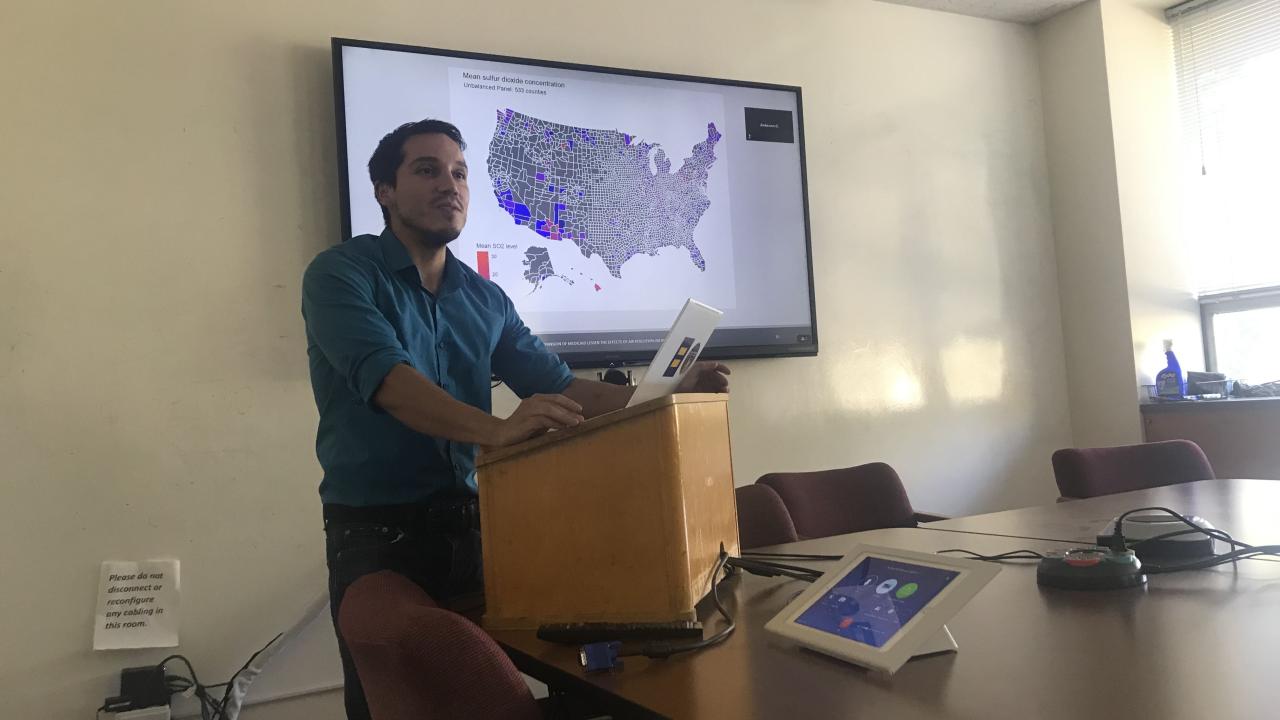
Lab Seminar - Medicaid expansion reduces the effect of air pollution on birth outcomes
Quick Summary
- Anderson Ospino presented a paper analyzing the effectiveness of public health insurance (Medicaid) in mitigating the harmful effects of prenatal air pollution on fetal death and birth outcomes.
Anderson Ospino presented a paper analyzing the effectiveness of public health insurance (Medicaid) in mitigating the harmful effects of prenatal air pollution exposure on fetal death and birth outcomes. Air pollution has an extensive range of deleterious impacts on health and has been linked to poor outcomes in pregnancy, including premature birth, low birth weights, and even fetal death. Poor access to health care may worsen these impacts because pregnant women may have restricted access to treatments that could offset the impacts of poor air quality. In the United States, the federal government provides medical care to needy families through an entitlement program called Medicaid. In the 1980s, eligibility for the program was expanded in several states. Anderson used variation in the timing of Medicaid expansion across states to identify the program’s impact on the marginal effects of air pollution on fetal death and adverse birth outcomes. He found that in some cases, Medicaid’s expansion did indeed reduce the effect of air pollution on fetal death and birth outcomes. One implication of these findings is that subnational governments have tools besides environmental policy to mitigate the effects of air pollution – and possibly other environmental factors- on health outcomes. A closely related policy implication: Provided evidence of the effectiveness of adaptation strategies (e.g., Medicaid expansion), it may be worth comparing the cost and benefit of these policies to the cost and benefits of traditional mitigation strategies (e.g., reducing air pollution through cap & trade or taxes).